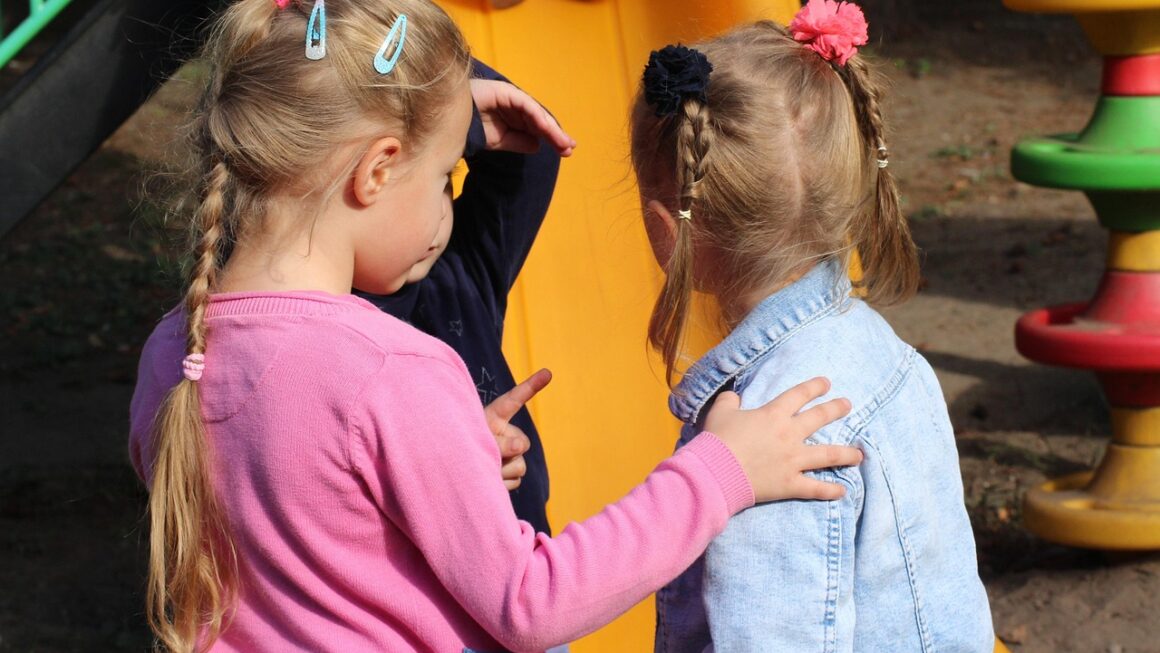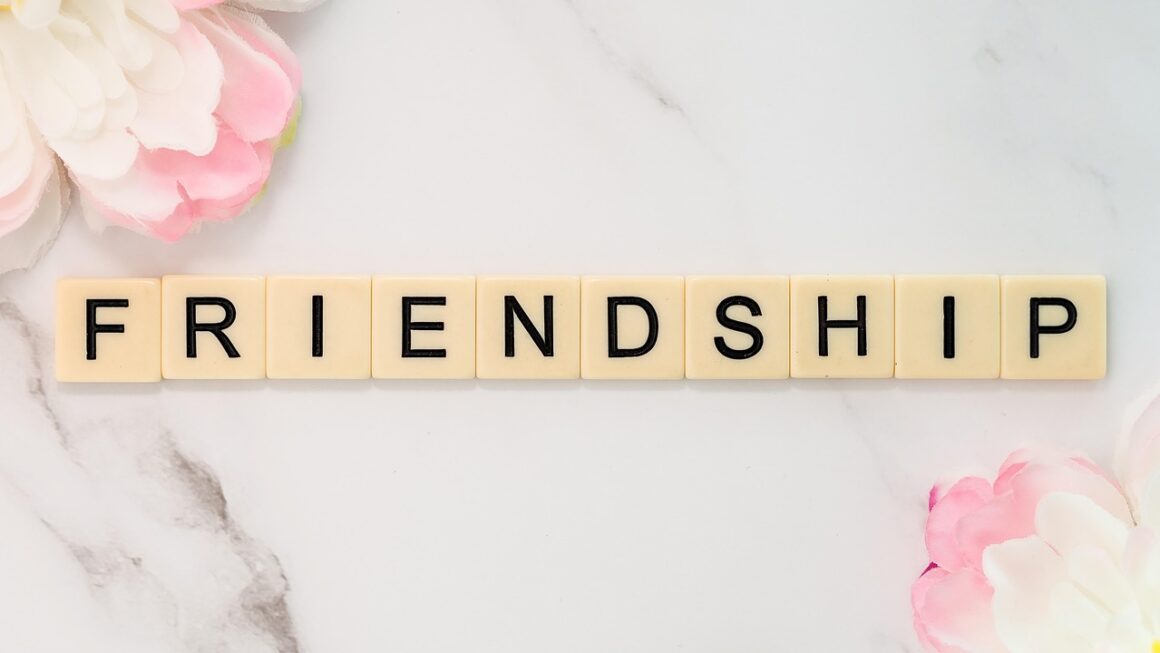It’s often said that friends are the family we choose. And like family, supportive friends play a crucial role in our lives, influencing our happiness, well-being, and even our success. These individuals aren’t just there for the good times; they’re the anchors during storms, the cheerleaders for our dreams, and the honest voices that help us navigate life’s complexities. But what exactly defines a supportive friend, and how can we cultivate these vital relationships in our own lives? Let’s dive in.
The Cornerstone of Support: What Makes a Friend Supportive?
Empathy and Active Listening
Supportive friends possess a remarkable capacity for empathy. They can genuinely understand and share your feelings, even if they haven’t experienced the exact same situation. This empathy fuels active listening, meaning they truly hear you, not just the words you’re saying, but also the emotions and unspoken needs behind them.
- Example: Instead of simply saying “That sucks,” a supportive friend might say, “I can only imagine how frustrating that must be. Tell me more about what’s going on.”
- Actionable Takeaway: Practice active listening by making eye contact, nodding, and asking clarifying questions to show genuine interest in what your friend is sharing.
Unconditional Positive Regard (With Boundaries)
Supportive friends offer acceptance and understanding, even when they don’t agree with your choices. This doesn’t mean they condone harmful behavior, but rather they create a safe space for you to be yourself, flaws and all. Healthy boundaries are still important, though. A truly supportive friend will tell you what you need to hear, not just what you want to hear, delivered with kindness and respect.
- Example: If you made a mistake, a supportive friend might say, “Okay, that wasn’t ideal, but what can you learn from this experience?” instead of dwelling on blame or judgment.
- Actionable Takeaway: Communicate your needs and boundaries clearly and respectfully. This sets the foundation for a healthy and supportive friendship.
Offering Practical Help and Encouragement
Support isn’t just about emotional validation; it also involves practical assistance. A supportive friend might offer to help you move, proofread your resume, or simply run errands when you’re feeling overwhelmed. Furthermore, they are your biggest cheerleaders, celebrating your successes and encouraging you to pursue your goals.
- Example: A supportive friend might say, “I know you’re nervous about this presentation, but I believe in you! You’ve worked hard, and you’re going to do great.” Or, they might proactively offer to rehearse with you.
- Actionable Takeaway: Be proactive in offering practical help to your friends. Small gestures can make a big difference in their lives.
Why Supportive Friendships Matter
Boosts Mental and Emotional Well-being
Research consistently shows a strong correlation between strong social connections and improved mental health. Supportive friends act as buffers against stress, anxiety, and depression. Knowing you have people in your corner can provide a sense of security and belonging, which is essential for overall well-being.
- Data: Studies have shown that individuals with strong social support networks tend to have lower rates of depression and anxiety. (Source: various studies cited by the American Psychological Association)
- Actionable Takeaway: Prioritize spending time with supportive friends, even when you’re feeling busy or overwhelmed.
Fosters Resilience and Growth
Facing challenges alone can be incredibly daunting. Supportive friends provide a safety net, helping you navigate difficult situations and bounce back from setbacks. They can offer different perspectives, help you identify solutions, and encourage you to learn from your experiences.
- Example: When facing a job loss, a supportive friend can help you update your resume, network for opportunities, and maintain a positive attitude during the job search.
- Actionable Takeaway: Don’t be afraid to lean on your supportive friends when you’re struggling. They are there to help you grow and overcome challenges.
Promotes Physical Health
The benefits of supportive friendships extend beyond mental and emotional well-being. Studies have shown that strong social connections can also positively impact physical health.
- Benefits:
Lower blood pressure
Reduced risk of heart disease
* Stronger immune system
- Actionable Takeaway: Cultivate and maintain healthy friendships as part of your overall wellness strategy.
Identifying Supportive Friends: Red Flags and Green Flags
Green Flags: Signs of a Supportive Friend
- Consistent and Reliable: They show up when you need them and follow through on their commitments.
- Good Listener: They actively listen and offer empathy and understanding.
- Honest and Respectful: They provide constructive feedback with kindness and respect.
- Celebrate Your Successes: They are genuinely happy for your achievements and celebrate your milestones.
- Respectful of Boundaries: They respect your boundaries and don’t pressure you to do things you’re not comfortable with.
Red Flags: Warning Signs of an Unsupportive Friend
- Self-Centered: Conversations always revolve around them and their needs.
- Judgmental: They frequently criticize or judge your choices.
- Competitive: They are overly competitive and struggle to celebrate your successes.
- Unreliable: They often cancel plans or fail to follow through on their commitments.
- Disrespectful of Boundaries: They disregard your boundaries and pressure you to do things you’re uncomfortable with.
Cultivating Supportive Friendships
Be a Supportive Friend Yourself
The best way to attract supportive friends is to be one yourself. Practice empathy, active listening, and offer practical help and encouragement to your friends. Show genuine interest in their lives and celebrate their successes.
- Actionable Takeaway: Reflect on your own behavior as a friend. Are you consistently supportive and reliable?
Nurture Existing Friendships
Strong friendships require effort and maintenance. Make time for your friends, even when you’re busy. Stay in touch regularly, plan activities together, and be there for them during difficult times.
- Example: Schedule regular coffee dates, phone calls, or video chats to stay connected with your friends.
- Actionable Takeaway: Make a list of your closest friends and schedule time to connect with each of them in the coming weeks.
Seek Out New Friendships
Expanding your social circle can introduce you to new and supportive individuals. Join clubs, attend events, and participate in activities that align with your interests.
- Actionable Takeaway: Identify a new activity or group that interests you and commit to attending regularly.
When to Re-evaluate a Friendship
Sometimes, despite our best efforts, a friendship may become toxic or unsupportive. It’s important to recognize when a friendship is no longer serving your best interests and to take steps to protect your well-being.
Signs It’s Time to Re-evaluate
- Constant Drama: The friendship is characterized by constant conflict and negativity.
- One-Sided Support: You’re always the one offering support, but it’s never reciprocated.
- Negative Impact on Well-being: The friendship consistently leaves you feeling drained, anxious, or depressed.
- Lack of Respect: Your boundaries are repeatedly violated, and your feelings are disregarded.
Steps to Take
- Communicate Your Concerns: Express your concerns to your friend in a calm and respectful manner.
- Set Boundaries: Clearly define your boundaries and enforce them consistently.
- Create Distance: If the friendship remains toxic, it may be necessary to create distance or end the friendship altogether.
- Focus on Self-Care: Prioritize your well-being and seek support from other friends, family, or a therapist.
Conclusion
Supportive friends are an invaluable asset in life. They offer emotional support, practical assistance, and encouragement, contributing to our mental, emotional, and even physical well-being. By understanding the qualities of a supportive friend, cultivating existing friendships, and seeking out new connections, we can build a strong and resilient social network that enriches our lives and helps us navigate the challenges and joys of life. Remember, being a supportive friend yourself is the first step towards attracting and maintaining meaningful and lasting relationships.




